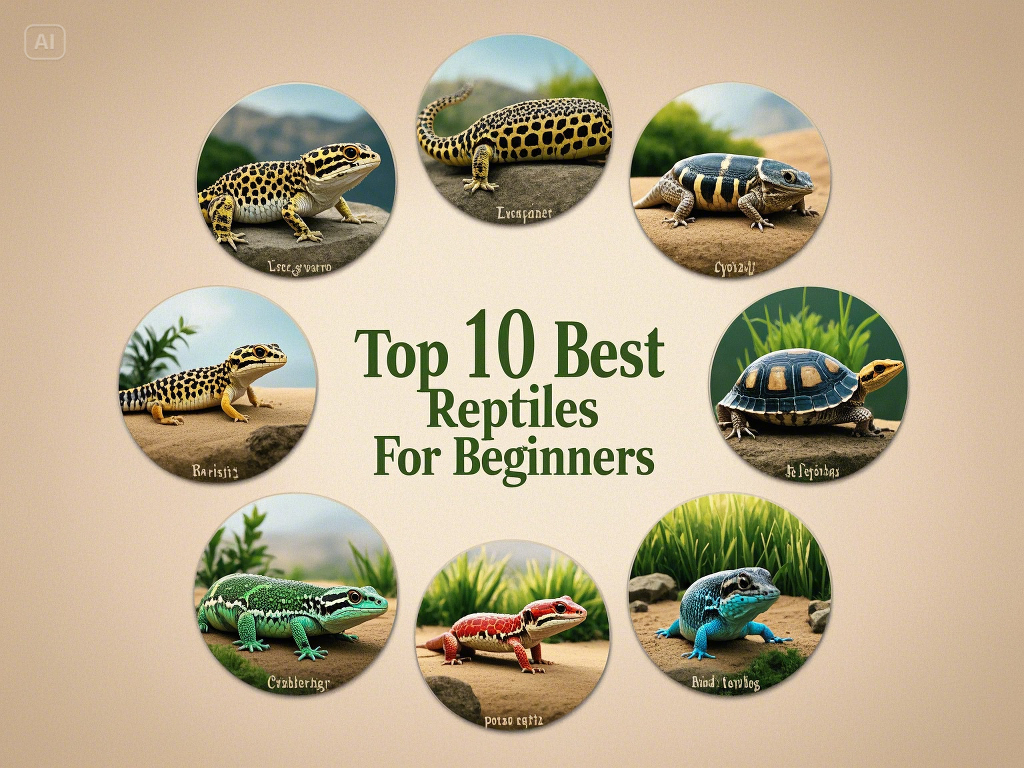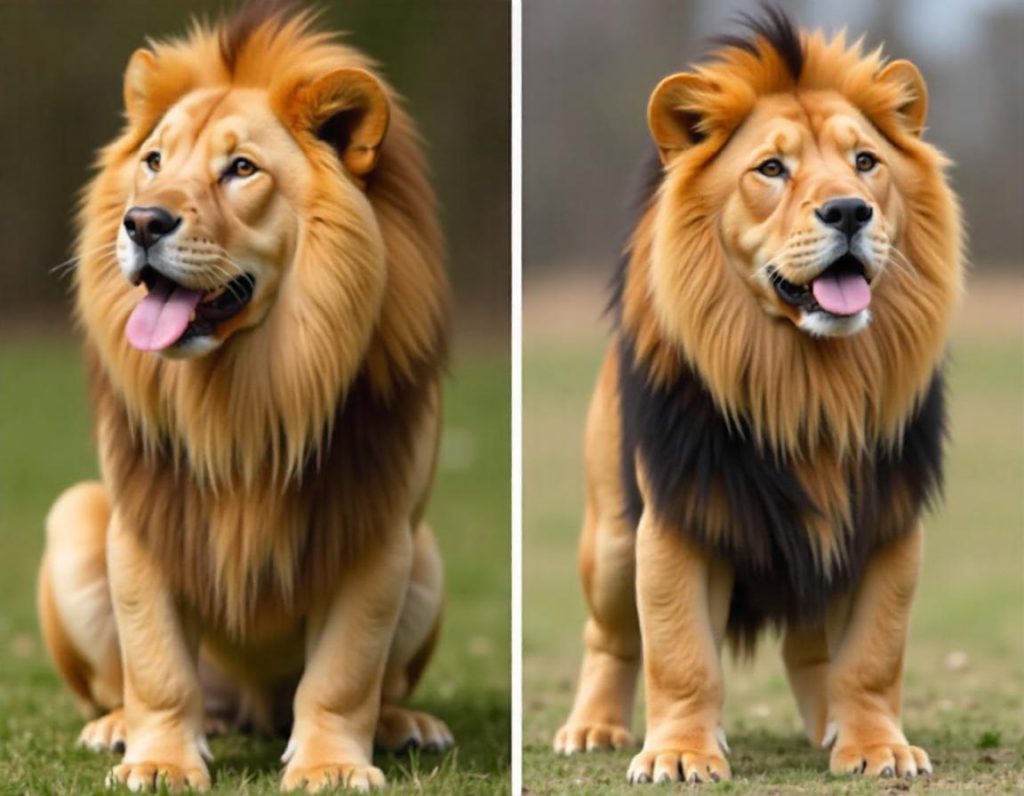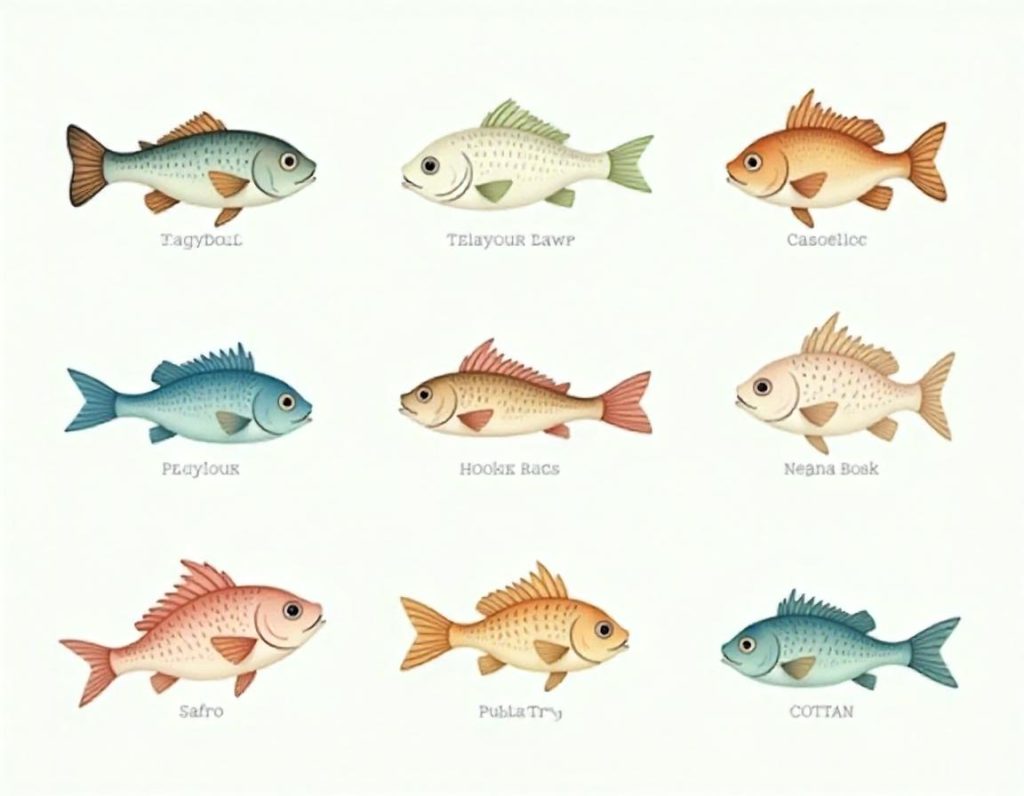Top 10 Best Reptiles for Beginners: A Comprehensive Guide
Reptiles are fascinating creatures that have captured the hearts of many pet enthusiasts. From their unique appearances to their intriguing behaviors, these animals make excellent companions for those willing to learn about their specific needs. However, not all reptiles are suited for beginners. Some require specialized care, advanced knowledge, or significant time commitments. If you’re considering bringing a reptile into your home but aren’t sure where to start, this guide will introduce you to the top 10 best reptiles for beginners. We’ll also cover essential care tips, answer frequently asked questions, and help you make an informed decision.
Why Choose a Reptile as a Pet?
Before diving into the list of beginner-friendly reptiles, it’s important to understand why reptiles are such appealing pets. Unlike dogs or cats, reptiles don’t demand constant attention or affection. They thrive in environments that mimic their natural habitats, making them relatively low-maintenance once their setup is complete. Additionally, many reptiles live long lives, providing years of companionship. For first-time reptile owners, selecting a species that aligns with your lifestyle and experience level is crucial. This is where our list of the top 10 best reptiles for beginners comes in handy.
The Top 10 Best Reptiles for Beginners
1. Leopard Gecko
Leopard geckos are one of the most popular reptiles for beginners—and for good reason. These small, docile lizards are easy to handle, have simple dietary needs, and adapt well to captivity.
Care Requirements:
- Habitat: A 20-gallon tank is sufficient for one leopard gecko. Use a substrate like reptile carpet or paper towels to prevent impaction.
- Temperature: Maintain a temperature gradient of 75°F–85°F (cool side) and 88°F–92°F (warm side).
- Diet: Feed them insects like crickets, mealworms, or dubia roaches dusted with calcium supplements.
- Lifespan: Up to 20 years with proper care.
Why They’re Great for Beginners:
Leopard geckos are hardy, forgiving of minor mistakes, and rarely bite. Their calm demeanor makes them ideal for handling.
2. Bearded Dragon
Bearded dragons are another excellent choice for novice reptile keepers. Known for their friendly personalities, these Australian natives are highly interactive and enjoy being handled.
Care Requirements:
- Habitat: A 40-gallon tank is recommended for juveniles, while adults need at least 75 gallons.
- Lighting: UVB lighting is essential for vitamin D3 synthesis. Provide a basking spot of 95°F–110°F.
- Diet: Omnivorous diet consisting of vegetables, fruits, and insects like crickets and superworms.
- Lifespan: 8–12 years on average.
Why They’re Great for Beginners:
Bearded dragons are social, expressive, and relatively easy to care for once their habitat is established.
3. Corn Snake
Corn snakes are among the most popular snakes for beginners due to their manageable size, gentle temperament, and ease of care.
Care Requirements:
- Habitat: A 20-gallon tank works for juveniles, but adults need at least 40 gallons.
- Temperature: Keep temperatures between 75°F–85°F, with a basking area of 88°F–92°F.
- Diet: Feed appropriately sized mice every 7–10 days.
- Lifespan: 15–20 years.
Why They’re Great for Beginners:
Corn snakes are non-venomous, rarely bite, and can be handled regularly without stress.
4. Ball Python
Ball pythons are known for their laid-back nature and striking patterns. These snakes are perfect for beginners who prefer a more hands-off approach.
Care Requirements:
- Habitat: Adults require a 40-gallon enclosure. Use bedding like coconut husk or aspen shavings.
- Temperature: Maintain a range of 75°F–85°F, with a basking spot of 88°F–92°F.
- Diet: Feed frozen-thawed rodents every 1–2 weeks.
- Lifespan: 20–30 years.
Why They’re Great for Beginners:
Ball pythons are docile, rarely strike, and tolerate handling well.
5. Crested Gecko
Crested geckos are charming little reptiles native to New Caledonia. Their prehensile tails and “eyelashes” give them a whimsical appearance.
Care Requirements:
- Habitat: A vertical 20-gallon terrarium is ideal. Use a substrate like sphagnum moss or coconut fiber.
- Humidity: Maintain humidity levels between 60%–80%. Mist the enclosure daily.
- Diet: Commercial crested gecko diet (CGD) or powdered food mixed with water.
- Lifespan: 15–20 years.
Why They’re Great for Beginners:
Crested geckos don’t require live feeding or UVB lighting, simplifying their care routine.
6. Russian Tortoise
Russian tortoises are small, hardy, and full of personality. They’re great for beginners interested in long-term commitment.
Care Requirements:
- Habitat: An outdoor pen or large indoor enclosure with plenty of space.
- Temperature: Daytime temps of 75°F–85°F; nighttime drops to 65°F–70°F.
- Diet: Herbivorous diet including leafy greens, vegetables, and occasional fruits.
- Lifespan: 40+ years.
Why They’re Great for Beginners:
Their resilience and straightforward care make them ideal for novices.
7. Red-Eared Slider
Red-eared sliders are aquatic turtles known for their vibrant colors and active behavior. While they require more maintenance than other reptiles, they’re still suitable for beginners.
Care Requirements:
- Habitat: A large aquarium with both water and basking areas. Juveniles need 20–30 gallons; adults require 75+ gallons.
- Temperature: Water temp of 75°F–78°F; basking area of 85°F–90°F.
- Diet: Omnivorous diet of pellets, vegetables, and occasional protein sources like shrimp.
- Lifespan: 20–40 years.
Why They’re Great for Beginners:
With proper filtration and regular cleaning, red-eared sliders are rewarding pets.
8. Gargoyle Gecko
Gargoyle geckos are similar to crested geckos but have a more rugged appearance. They’re equally easy to care for and fun to observe.
Care Requirements:
- Habitat: Vertical 20-gallon terrarium with climbing branches.
- Humidity: 60%–80%, with daily misting.
- Diet: CGD or powdered food supplemented with insects occasionally.
- Lifespan: 15–20 years.
Why They’re Great for Beginners:
Their low-maintenance lifestyle appeals to first-time reptile owners.
9. Kenyan Sand Boa
Kenyan sand boas are compact, burrowing snakes that are incredibly easy to care for. Their simple needs make them perfect for beginners.
Care Requirements:
- Habitat: A 10–20 gallon tank filled with sand or aspen bedding.
- Temperature: 75°F–85°F ambient, with a basking spot of 90°F.
- Diet: Frozen-thawed mice every 7–10 days.
- Lifespan: 15–20 years.
Why They’re Great for Beginners:
Their shy nature and minimal handling requirements suit busy lifestyles.
10. Blue-Tongued Skink
Blue-tongued skinks are charismatic lizards known for their bright blue tongues and curious personalities.
Care Requirements:
- Habitat: A 40-gallon tank or larger. Use a mix of substrates like coconut husk and cypress mulch.
- Temperature: Gradient of 75°F–85°F, with a basking spot of 95°F–100°F.
- Diet: Omnivorous diet of vegetables, fruits, and occasional proteins like boiled chicken.
- Lifespan: 15–20 years.
Why They’re Great for Beginners:
Their friendly demeanor and adaptability make them wonderful starter reptiles.
Tips for Choosing the Right Reptile
When selecting from the top 10 best reptiles for beginners, consider the following factors:
- Space Availability: Ensure you have enough room for the reptile’s enclosure.
- Time Commitment: Some reptiles require daily feeding or cleaning routines.
- Budget: Factor in costs for initial setup, ongoing supplies, and veterinary care.
- Personal Preferences: Do you want a hands-on pet or one you can admire from afar?
Frequently Asked Questions
Q: Are reptiles safe for children?
A: Many reptiles on this list, like leopard geckos and corn snakes, are safe for supervised interactions with children. Always teach kids how to handle reptiles gently.
Q: How much does it cost to own a reptile?
A: Initial costs vary depending on the species but typically range from $200–$500 for setup. Monthly expenses include food, electricity for heating/lights, and occasional vet visits.
Q: Can reptiles bond with humans?
A: While reptiles don’t form emotional bonds like mammals, many become accustomed to their owners through regular handling.
Conclusion
Choosing a reptile as a pet is an exciting journey, especially when you select from the top 10 best reptiles for beginners. Whether you opt for the playful bearded dragon, the elegant ball python, or the charming crested gecko, each species offers its own unique charm and rewards. By understanding their care requirements and committing to their well-being, you’ll create a fulfilling relationship with your new scaly companion. So, take the plunge and discover the joy of reptile ownership today!





